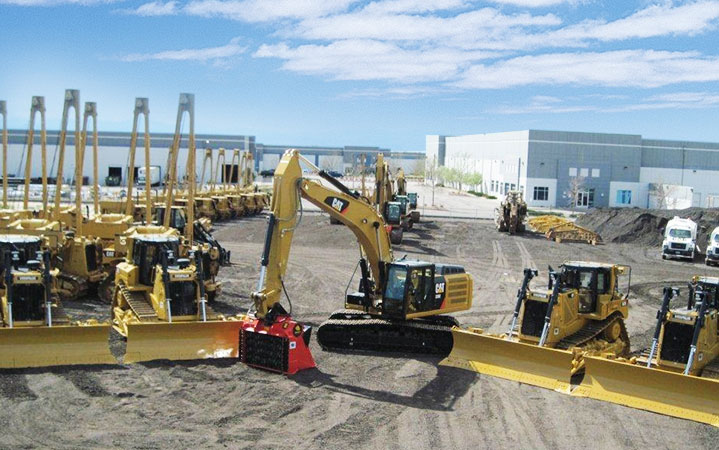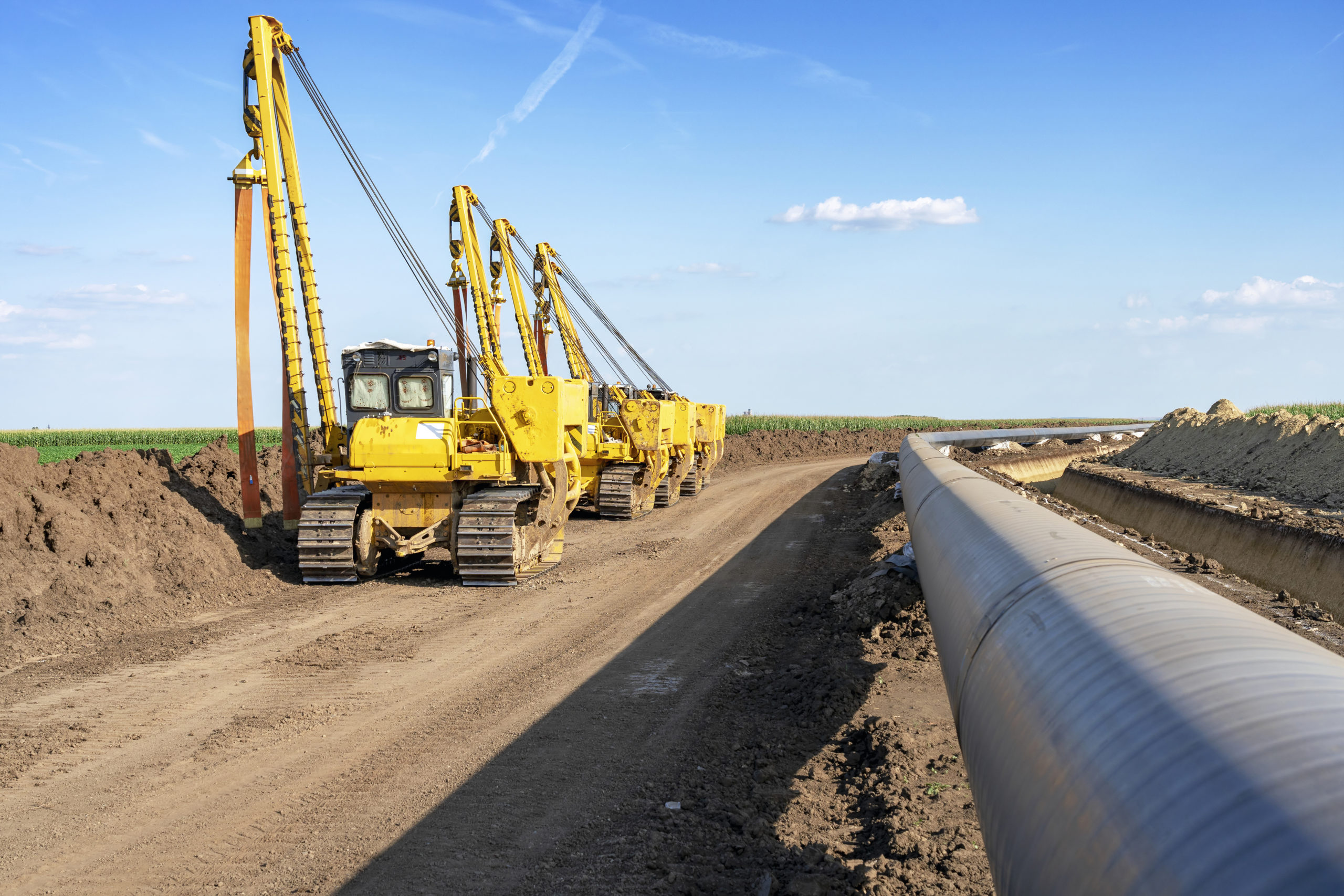Superior Rentals reviews: strengths and weaknesses
Wiki Article
A Comprehensive Overview to the Various Kinds of Oil Field Equipment and Pipeline Equipment Available
The oil and gas market relies heavily on customized devices for efficient removal and transport. Numerous kinds of equipment, from drilling rigs to storage tanks, play essential duties in this complex process. Each tool serves distinctive features that add to total functional success. Comprehending these components is important for any individual associated with the market. As the sector advances, so as well do the modern technologies that support it. What developments are on the horizon?
Drilling Rigs: The Backbone of Oil Expedition
Drilling rigs function as the important equipment in the domain name of oil exploration, enabling business to gain access to hydrocarbon reserves hidden deep under the Earth's surface. These rigs come in various types, consisting of land rigs, offshore rigs, and mobile systems, each developed to operate in certain environments. Geared up with advanced technology, piercing rigs can permeate geological formations with precision, making certain effective source extraction. The structural stability and operational capacities of these rigs are crucial, as they need to stand up to severe conditions and substantial pressures. The option of a boring gear impacts the total project cost and timeline, making it an essential factor to consider for oil companies looking for to maximize their expedition initiatives and make the most of efficiency in their operations.Pumps: Vital for Fluid Activity
In the oil removal process, the function of pumps is considerable, assisting in the activity of fluids throughout various phases of manufacturing. Pumps are crucial for transporting unrefined oil, water, and various other fluids from below ground storage tanks to the surface area and afterwards through pipes to refineries. They can be found in various types, consisting of centrifugal, favorable variation, and completely submersible pumps, each serving certain objectives based on the fluid qualities and operational needs. Centrifugal pumps are frequently utilized for their effectiveness in high-flow applications, while positive variation pumps master managing viscous fluids. The option of pump influences total efficiency, operational safety and security, and upkeep costs. Proper selection and upkeep of pumps are essential for maximizing production and reducing downtime in oil field operations.Valves: Managing Circulation and Pressure

Shutoffs play an essential role in handling the circulation and pressure of liquids within oil areas and pipelines. Numerous types of shutoffs offer distinctive applications, each developed to accomplish certain features essential for efficient procedure - Superior Oilfield pipeline equipment rentals. Recognizing the characteristics and uses these shutoffs is essential for maximizing system performance and safety and security
Sorts of Valves
Vital components in oil area operations, shutoffs play an important role in regulating the flow and stress of fluids within pipes and equipment. Various types of valves are used to satisfy the varied requirements of oil and gas production. Usual types consist of entrance valves, which give a straight-line circulation and very little stress decrease; world valves, recognized for their throttling capabilities; and sphere shutoffs, recognized for their quick on/off control. Additionally, check shutoffs avoid heartburn, while butterfly valves supply a light-weight option for managing flow. Each valve kind is made with details materials and configurations to withstand the extreme conditions usually discovered in oil fields, making certain dependability and effectiveness in operations. Recognizing these types is crucial for reliable system administration.Valve Applications and Functions
While different types of valves serve distinctive purposes, their main applications focus on managing circulation and pressure within oil and gas systems. Shutoffs such as entrance, world, and ball shutoffs regulate fluid movement, ensuring peak efficiency and safety and security. Gateway valves are generally made use of for on/off control, providing minimal flow resistance. Globe shutoffs, on the various other hand, offer specific flow guideline, making them suitable for strangling applications. Ball valves are preferred for their quick procedure and tight sealing capacities. On top of that, pressure safety valve are my link essential for stopping system overpressure, safeguarding devices stability. On the whole, the ideal option and application of shutoffs improve functional effectiveness, guaranteeing the dependable transportation of oil and gas through pipelines and handling facilities.Compressors: Enhancing Gas Transport
Compressors play a critical duty in the effective transportation of all-natural gas, guaranteeing that it moves efficiently with pipes over fars away. These tools increase the pressure of natural gas, enabling it to get rid of friction and altitude changes within the pipeline system. Additionally, compressors help with the harmonizing of supply and need, suiting changes in consumption and manufacturing rates. Different sorts of compressors are used in the market, consisting of centrifugal, reciprocating, and rotating screw compressors, each offering distinctive advantages based on the functional requirements. Normal maintenance of these compressors is important to discover this info here take full advantage of performance and decrease downtime, inevitably adding to a reliable gas transportation network. Their vital feature highlights the value of compressors in the general oil and gas framework.Storage Tanks: Safe and Reliable Liquid Management
Effective transport of gas depends on various supporting systems, among which is the proper monitoring of storage space tanks. These storage tanks play a vital function in securely containing liquids, guaranteeing that functional efficiency is kept while minimizing environmental risks. Built from durable products, they are designed to endure high pressures and destructive elements. Properly sized and purposefully situated, tank help with the smooth circulation of gas and other liquids, protecting against bottlenecks in supply chains. Routine maintenance and monitoring are necessary to detect leaks or structural issues, advertising safety and security and compliance with regulatory requirements. Ultimately, the efficient monitoring of storage space containers is vital for the overall integrity and integrity of the oil and gas industry's fluid handling systems.
Pipeline Systems: Infrastructure for Transport
Pipeline systems serve as the foundation of the oil and gas sector, facilitating the reliable transportation of hydrocarbons over huge distances. These systems contain different parts, including pipes, my explanation valves, pumps, and compressors, all thoroughly created to assure smooth flow. The materials utilized in pipeline construction, typically steel or high-density polyethylene, are chosen for toughness and resistance to rust. Pipeline networks can span throughout land and water, connecting production websites to refineries and warehouse. In addition, advanced innovation allows real-time tracking of flow rates and stress degrees, boosting functional performance. The tactical positioning of these pipes reduces environmental effect while making best use of resource availability, therefore playing a necessary function in conference energy demands around the world.Safety Equipment: Making Sure Worker and Environmental Defense
The operation of pipeline systems, while important for energy transport, additionally presents substantial safety obstacles for employees and the environment. Safety and security equipment plays a substantial role in alleviating these dangers. Individual protective equipment (PPE) such as headgears, gloves, and non-slip shoes safeguards employees from physical threats. Furthermore, gas detection systems monitor for leakages, making certain that dangerous substances do not present a danger to workers or the bordering ecosystem. Emergency shutdown systems are crucial for promptly halting procedures during a dilemma, preventing possible disasters. Spill containment materials, including absorbents and barriers, are essential for decreasing environmental impact. Overall, purchasing all-encompassing safety and security devices is important for maintaining functional stability and shielding both workers and the environment in the oil and gas industry.
Frequently Asked Concerns
Just how Do I Pick the Right Oil Field Equipment for My Project?
Selecting the right oil area equipment involves reviewing job requirements, spending plan constraints, and functional needs. Take into consideration elements such as devices dependability, compatibility with existing systems, and the vendor's reputation to ensure peak performance and security.What Are the Maintenance Needs for Oil Field Equipment?
Maintenance demands for oil area devices consist of normal assessments, lubrication, and timely repairs. Operators ought to additionally stick to maker guidelines, display performance metrics, and guarantee conformity with security guidelines to improve longevity and effectiveness.
How Can I Guarantee Compliance With Environmental Laws?
To ensure compliance with environmental regulations, firms need to perform routine audits, implement finest methods, buy training, maintain correct documents, and remain upgraded on regulation (Superior Rentals midland). Collaboration with environmental agencies can also boost adherence to lawsWhat Is the Typical Lifespan of Pipeline Equipment?
The typical life expectancy of pipeline tools usually ranges from 20 to 50 years, relying on aspects such as worldly high quality, environmental problems, and maintenance techniques. Normal examinations can considerably influence longevity and functional effectiveness.How Do I Securely Transfer Oil Field Equipment to Remote Locations?
Transporting oil area devices to remote areas requires mindful planning, consisting of course analysis, protecting licenses, using ideal automobiles, and guaranteeing safety and security methods are followed. Correct training and interaction among crews are crucial for successful transport.Report this wiki page